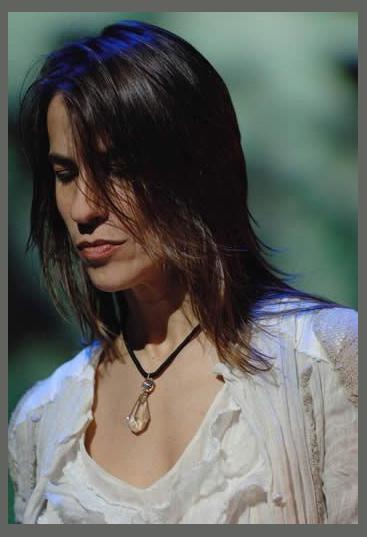 Lídia Pujol
Lídia Pujol
Lidia Pujol: A Musical Journey Rooted in Catalan Culture
Origins and Early Influences:
Lidia Pujol, a Catalan singer and songwriter, emerged in the vibrant musical landscape of Barcelona in the early 2000s. Her music draws inspiration from her rich Catalan heritage, infused with elements of folk, pop, and jazz. Pujol's artistry reflects her deep connection to her native language and culture.
Rise to Prominence and Critical Acclaim:
Lidia Pujol's debut album, "Solsticio," released in 2005, garnered critical acclaim and established her as a rising star in the Catalan music scene. Her poignant lyrics, evocative melodies, and soulful voice resonated with audiences.
The release of her sophomore album, "Mirada," in 2008, solidified Pujol's status as a musical force to be reckoned with. The album showcased her versatility, blending traditional Catalan folk songs with contemporary pop arrangements.
International Recognition and Collaborations:
Lidia Pujol's music has transcended borders, reaching listeners worldwide. She has performed at renowned festivals, including the Montreux Jazz Festival and the SXSW Music Festival. Her collaborations with renowned musicians, such as Joan Manuel Serrat and Sílvia Pérez Cruz, have further cemented her reputation as a respected artist.
Challenges and Controversies:
Despite her success, Lidia Pujol's career has not been without its challenges. As an artist who sings predominantly in Catalan, she has faced some resistance from certain sectors of the Spanish-speaking population. However, Pujol has remained steadfast in her commitment to her language and culture.
Discography:
* Solsticio (2005)
* Mirada (2008)
* Voces del Mediterráneo (2011)
* Llunàtics (2015)
* Camins (2019)
Members:
Lidia Pujol (vocals, guitar)
Toni Pujol (guitar, vocals)
Joan Solà (double bass)
David Xirgu (drums)
Sílvia Pérez Cruz (vocals, backing vocals)
The Song "Cançó En La Sang":
One of Lidia Pujol's most beloved songs, "Cançó En La Sang," is a testament to her passion for her Catalan heritage. The lyrics, which translate to "Song in the Blood," celebrate the enduring spirit of the Catalan people and the power of music to unite and inspire.
The song has become an anthem for Catalan identity, particularly during times of political and social upheaval. Pujol's heartfelt performance and the song's poignant message continue to resonate with listeners across generations.
Origins and Early Influences:
Lidia Pujol, a Catalan singer and songwriter, emerged in the vibrant musical landscape of Barcelona in the early 2000s. Her music draws inspiration from her rich Catalan heritage, infused with elements of folk, pop, and jazz. Pujol's artistry reflects her deep connection to her native language and culture.
Rise to Prominence and Critical Acclaim:
Lidia Pujol's debut album, "Solsticio," released in 2005, garnered critical acclaim and established her as a rising star in the Catalan music scene. Her poignant lyrics, evocative melodies, and soulful voice resonated with audiences.
The release of her sophomore album, "Mirada," in 2008, solidified Pujol's status as a musical force to be reckoned with. The album showcased her versatility, blending traditional Catalan folk songs with contemporary pop arrangements.
International Recognition and Collaborations:
Lidia Pujol's music has transcended borders, reaching listeners worldwide. She has performed at renowned festivals, including the Montreux Jazz Festival and the SXSW Music Festival. Her collaborations with renowned musicians, such as Joan Manuel Serrat and Sílvia Pérez Cruz, have further cemented her reputation as a respected artist.
Challenges and Controversies:
Despite her success, Lidia Pujol's career has not been without its challenges. As an artist who sings predominantly in Catalan, she has faced some resistance from certain sectors of the Spanish-speaking population. However, Pujol has remained steadfast in her commitment to her language and culture.
Discography:
* Solsticio (2005)
* Mirada (2008)
* Voces del Mediterráneo (2011)
* Llunàtics (2015)
* Camins (2019)
Members:
Lidia Pujol (vocals, guitar)
Toni Pujol (guitar, vocals)
Joan Solà (double bass)
David Xirgu (drums)
Sílvia Pérez Cruz (vocals, backing vocals)
The Song "Cançó En La Sang":
One of Lidia Pujol's most beloved songs, "Cançó En La Sang," is a testament to her passion for her Catalan heritage. The lyrics, which translate to "Song in the Blood," celebrate the enduring spirit of the Catalan people and the power of music to unite and inspire.
The song has become an anthem for Catalan identity, particularly during times of political and social upheaval. Pujol's heartfelt performance and the song's poignant message continue to resonate with listeners across generations.